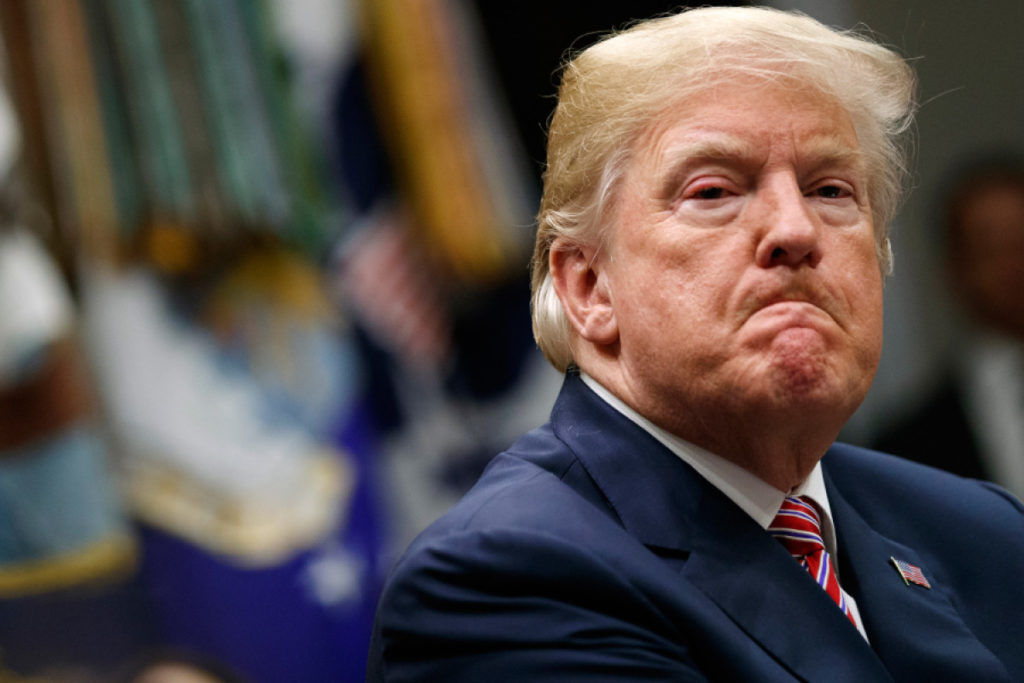DC Report
Everything You’ll Want to Know About Donald Trump’s Legal Woes
The Disgraced Former Guy Is In Over His Head in Court Cases and Investigations; Here’s Your Definitive Catalogue
Bookmark this article. It’s your scorecard to the trials and tribulations of Donald J. Trump.
DCReport has compiled a list of 21 legal cases, investigations and related matters engulfing Trump, his family and their four-generation criminal enterprise, the Trump Organization.
The items range from the widely reported grand jury investigation by the Manhattan district attorney to an obscure $1 million dispute regarding a Chicago property tax refund; from the congressional inquiry into the Jan. 6 Capitol insurrection to two defamation cases brought by women who claim Trump assaulted them.

What you read here is based on our own reporting as well as the ongoing Trump Litigation Tracker maintained by the online forum Just Security at New York University School of Law. We also relied on the Program on Extremism at George Washington University, which created a central database of court records related to the events of the Jan. 6. Capitol insurrection.
We believe our list is complete, but we invite anyone with knowledge of other pending or ongoing legal matters to alert us.
Our takeaway? In reviewing his legal battles, we noticed two common themes: money and lies. Trump’s penchant for lying, particularly his pattern of lying about his finances and the election, is coming back to bite him legally.
Throughout Trump’s presidency the phrase, “No one is above the law,” was heard frequently. But other than his record-setting two impeachments, Trump has effectively evaded legal consequence. That’s changing. Now that Trump is a private citizen, these lawsuits and investigations will determine whether he will be held accountable for his illegal conduct and sedition.
The Money
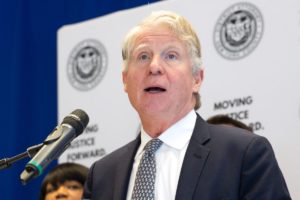
1. Manhattan D.A.’s Criminal Investigations into Trump’s Finances
Manhattan District Attorney Cy Vance Jr. has been investigating Trump, the Trump Organization and its officers since at least 2018. Trump’s former lawyer Michael Cohen and the former daughter-in-law of Trump’s chief financial officer Allen Weisselberg are both known to be cooperating with the D.A.’s office, and a grand jury is well under way. Court filings and witnesses have indicated that one of the main components of the investigation is whether the former president and his company falsely inflated the value of their properties for banks and insurers and then undervalued the properties to skimp on taxes. Both the grand jury and Cy Vance’s tenure are set to expire in November so we expect announcements, not to mention indictments, before then.
Where’s the Justice Department?

While Attorney General Merrick Garland’s Justice Department is on the periphery of many of these cases and investigations, the department is notably absent from any primary cases directed at Trump himself.
Indeed, in some cases such as the E. Jean Carroll defamation suit, Garland and the department actually supported Trump against his accusers. In other matters directly involving the politicization of the department, Garland chose to let its inspector general take the point.
“Sometimes we have to make decisions about the law that we would never have made and that we strongly disagree with as a matter of policy,” he told a Senate committee in June.
In July, the department cleared the way for government officials to testify in the congressional election interference investigation. The department said that it “would not be appropriate to assert executive privilege with respect to communications with former President Trump and his advisers and staff on matters related to the committee’s proposed interviews.”
2. New York Attorney General’s Civil and Criminal Investigations
In a similar vein to the Manhattan D.A.’s office, New York Attorney General Letitia James is investigating Trump for altering property values to avoid taxes. Although the case started in civil court, James announced in May that the probe expanded to a criminal investigation.
3. D.C. Civil Suit over Misuse of 2017 Inauguration Funds
For the 2017 inauguration, Trump raised a staggering and record-setting $107 million. The civil suit alleges that Trump used various schemes to siphon money from that inauguration fund and to direct it to the Trump businesses. In one example Trump’s inaugural committee allegedly paid $175,000 for event space at Trump’s own Washington hotel. That same day that same space was rented to a nonprofit for $5,000—in line with the hotel’s standard pricing guidelines. The suit alleges that the Trump nonprofit was used to enrich Trump’s personal businesses.
4. Mary Trump Fraud Litigation

Michael Cohen once told Congress that in his experience, “Trump inflated his total assets when it served his purposes.” In niece Mary Trump’s case, however, the daughter of his dead brother Fred Trump Jr. alleges that Trump devalued the family assets to defraud her out of 10s of millions of her grandfather’s inheritance. Mary Trump—a psychologist and author of the bestselling Too Much and Never Enough—alleges that her aunt and uncles presented her with fraudulent valuations to hide the real value of the estate, ty keeping 10s of millions for themselves.
5. Panama Hotel Fraud and Tax Litigation
Ithaca Capital, a real estate holding company, alleges that it purchased a majority share of the Trump Hotel in Panama based on false and misleading information. Ithaca claims that Trump’s company misrepresented the hotel as profitable and artificially deflated the expenses. The company alleges that the Trump Organization failed to report or fully pay Social Security withholding for hotel employees or pay income taxes to the Panama government. Additionally, Trump’s management company paid itself more than what was listed on the financial statements all while the hotel sat virtually empty and went uncleaned for years.
6. Doe vs. The Trump Corporation Class Action
In a class-action suit filed in 2018 by the New York law firm of Kaplan, Hecker & Fink, the plaintiffs allege that from 2005 to 2015 Donald, Ivanka, Don Jr. and Eric Trump used the Trump brand to promote and endorse various “Secrets of His Success”-style seminars, business opportunities and training programs through companies Trump claimed were independent of him. The suit alleges that the family allowed these companies to use Trump’s brand name and endorsements to defraud thousands of struggling Americans who invested in a range of exorbitantly priced offerings from these companies, knowing that the purchasers’ likelihood of success was minuscule. The family was paid millions by the companies, the suit claims.
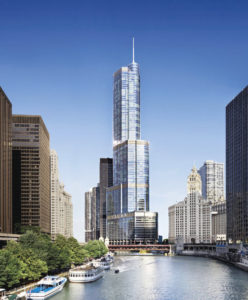
7. Chicago State’s Attorney Blocks a $1 Million Tax Refund
The Cook County State’s Attorney Kimberly Foxx has filed a suit to block a $1 million property tax refund awarded in June by the Illinois Property Tax Appeal Board. The board found that the Cook County Board of Review overestimated the value of Trump’s Chicago skyscraper and overcharged his firm in 2011. The refund has been controversial after an initial investigation was undertaken in 2020 due to allegations that a Republican state official who was the executive director of the Property Tax Appeal Board pressured his staff to reduce the value of the tax bill to try and obtain the $1 million refund for Trump. That state official was let go in October 2020 and the vote was delayed until after Trump left office, but it still passed unanimously in favor of Trump.
The Lies
8. Atlanta Criminal Election Influence Investigation
On Feb. 10, 2021, the Fulton County district attorney’s office opened an investigation into attempted election interference, based on the widely reported recording of a phone call between Trump and Georgia’s Secretary of State Brad Raffensperger. Trump was heard pressing the Georgian to overturn the election results saying, “I just want to find 11,780 votes.” The case looked to be stalled until last month when the county provided additional funds to the D.A.’s office to help handle a severe backlog of cases.
9. Washington, D.C., Incitement Criminal Investigation
Shortly after the Jan. 6 Capitol insurrection, D.C.’s Attorney General Karl Racine said, “I know that I’m looking at a charge under the D.C. code of inciting violence, and that would apply where there is a clear recognition that one’s incitement could lead to foreseeable violence.” Inciting a riot in Washington is a misdemeanor with a very high bar to be able to prove, but related lawsuits and the congressional Jan 6 investigation could help Racine with his case.
10. Incitement Suit for Jan 6 Capitol Attack
Ten Democratic members of Congress are suing Trump, Rudy Giuliani the Proud Boys, the Oath Keepers, the Warboys and the head of the Warboys, Enrique Tarrio. The suit says that Trump violated the Ku Klux Klan Act by inciting the rioters with the intent to prevent the members from discharging their official duty of approving the Electoral College vote. The 1871 act allows members of Congress to sue individuals who conspire to violently “molest, interrupt, hinder, or impede” the discharge of a public official’s duties. The suit was originally filed in February by Rep. Bennie Thompson (D-Miss.), who later withdrew his name when he was appointed to lead the House select committee investigating the riot.
11. Eric Swalwell Incitement Suit for Jan. 6 Riots
On March 5, 2021, Rep. Eric Swalwell (D-Calif.) brought a suit against Donald Trump, Donald Trump Jr., Representative Mo Brooks (R-Ala.) and then-lawyer Rudy Giuliani. Like the suit brought by other members of Congress, Swalwell claims Trump violated the Ku Klux Klan Act and that Trump and the other defendants incited the violence in the Capitol. Swalwell’s suit additionally claims that the defendants should be held civilly liable for negligence because they committed criminal incitement under D.C.’s local code. Swalwell’s suit may lay the groundwork for the criminal charges that the D.C. attorney general announced he was pursuing.
12. Capitol Police Suit for Jan. 6 Riots
Two Capitol Police officers who were injured in the Jan. 6 riot have sued Trump, arguing that he was responsible for their physical and emotional injuries. They claim that Trump “inflamed, encouraged, incited, directed, and aided and abetted” the “insurrectionist mob” to force its way “over and past the plaintiffs and their fellow officers, pursuing and attacking them inside and outside the United States Capitol.”
13. NAACP’s Legal Defense Fund Voting Rights Case
The Michigan Welfare Rights Organization and three Michigan voters in November sued Trump and his campaign alleging that Trump falsely spread stories of widespread fraud and pressured election officials to disenfranchise Black voters in Detroit and other cities with large Black populations, including Philadelphia, Milwaukee and Atlanta. The complaint was amended a month later to include the NAACP as a plaintiff and the Republican National Committee as a defendant.
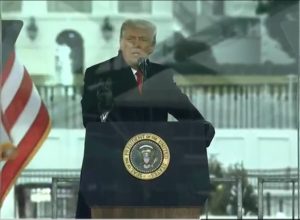
14. 572 Federal Cases Against Capitol Insurrectionists
While Trump has not been charged for his role in the Jan. 6 violence at the Capitol, individual rioters have been. We are including the Capitol cases here because Trump’s role in the insurrection is at the very center of events. Many rioters have claimed that they went to Washington and marched on the Capitol because Trump told them to—and he may well end up being charged for his incitement of the riot.
Congressional Investigations
15. House Ways and Means Committee
On July 30, the Department of Justice reversed a Bill Barr-era decision, saying that Ways and Means Committee Chairman Richard E. Neal (D-Mass.) had made valid arguments and the IRS must hand over to the committee Trump’s elusive tax returns, two years after Neal’s initial request.
16. House Oversight and Government Reform Committee
A federal judge this week ruled that Trump’s accountants must turn over two years’ worth of his tax and financial records to the committee investigating whether Trump and his businesses profited from his service in the White House. U.S. District Court Judge Amit Mehta approved a subpoena for Trump’s records covering 2017 and 2018 but turned down most of the panel’s request for similar information dating back to 2011. The decision is likely to be appealed by Trump’s lawyers and could also be challenged by the House panel.
17. House Financial Services and Intelligence Committees
The House Financial Services Committee and the House Intelligence Committee subpoenaed Deutsche Bank in 2019 seeking years of the president’s personal and business records. In a filing on May 17, the parties said they were “continuing to engage in negotiations intended to narrow or resolve their disputes and believe they are close to an agreement.”
18. House Select Committee on the Jan. 6 Attack
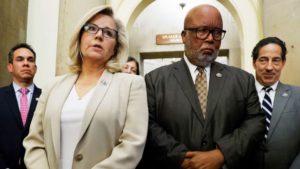
Democrat House Speaker Nancy Pelosi established the committee after efforts to form a bipartisan commission were rebuffed by Republicans. She appointed seven Democrats and two Republicans: Liz Cheney of Wyoming and Adam Kinzinger of Illinois, both of whom had voted to impeach Trump in January. Cheney has said the committee must focus on Trump’s role in the insurrection: “We must know what happened here at the Capitol. We must also know what happened every minute of that day in the White House—every phone call, every conversation, every meeting leading up to, during, and after the attack.” The committee, led by Rep. Bennie Thompson of Mississippi, held its first public testimony on July 27.
19. Senate Judiciary Committee
Committee Chairman Dick Durbin (D-Ill.) is focusing on the Trump-era politicization of the Department of Justice, starting with the department’s acquisition of metadata related to some members of the House of Representatives—including Intelligence Committee Chairman Adam Schiff (D-Calif.), who was the chief prosecutor in Trump’s first impeachment. The committee has since expanded its areas of interest to include the department’s role in the obstruction of Special Counsel Robert S. Mueller’s investigation and its role in regard to Trump’s lies about the 2020 presidential election. The committee has taken testimony from former Acting Attorney General Jeff Rosen and Byung J. Pak, the U.S. attorney in Atlanta who abruptly resigned rather than say there was widespread voter fraud in Georgia.
Sexual Assaults
 20. E. Jean Carroll Defamation Case
20. E. Jean Carroll Defamation Case
In 2019, journalist E. Jean Carroll wrote about her experience more than 20 years ago; she says Trump shoved her against the wall of a Bergdorf Goodman fitting room, forced himself on her and raped her. Trump accused Carroll of lying saying he didn’t even know her. Carroll disputed his claim with evidence in the form of a picture showing them together and by filing a defamation suit. Carroll’s civil defamation suit became complicated when William P. Barr’s Justice Department stepped in arguing that Trump was protected from being prosecuted for lying under the Federal Tort Claims Act which provides blanket immunity to federal employees who commit certain torts–including defamation–arising out of their official duties. The Justice Department also argued the case should be moved to federal court as it was a federal case as opposed to a state civil suit. In June, Merrick Garland’s Justice Department filed a reply continuing Barr’s arguments that the president is an employee under the act and that elected officials act within the scope of their employment when they respond to media inquiries.
21. Summer Zervos Defamation Suit
Before and after the 2016 presidential campaign, more than 25 women accused Trump of unwanted sexual conduct. Summer Zervos was one of Trump’s accusers. After Trump claimed she was lying, Zervos responded by filing a suit for defamation which was filed on January 17, 2017, three days before Trump took office. The case faced various delays during Trump’s presidency but on March 30, the New York Court of Appeals denied Trump’s ongoing argument that a state court could not hear a suit against a sitting president. In a one-sentence order, the court stated that the issue of Trump’s presidency was moot, and the case can now go forward.
-

Alison Greene is a political investigative journalist with a focus on election integrity and national intelligence issues. Follow her on Twitter @GrassrootsSpeak. Send tips to alisoniazoe@yahoo.com.
Author: John Hanno
Born and raised in Chicago, Illinois. Bogan High School. Worked in Alaska after the earthquake. Joined U.S. Army at 17. Sergeant, B Battery, 3rd Battalion, 84th Artillery, 7th Army. Member of 12 different unions, including 4 different locals of the I.B.E.W. Worked for fortune 50, 100 and 200 companies as an industrial electrician, electrical/electronic technician. View all posts by John Hanno

